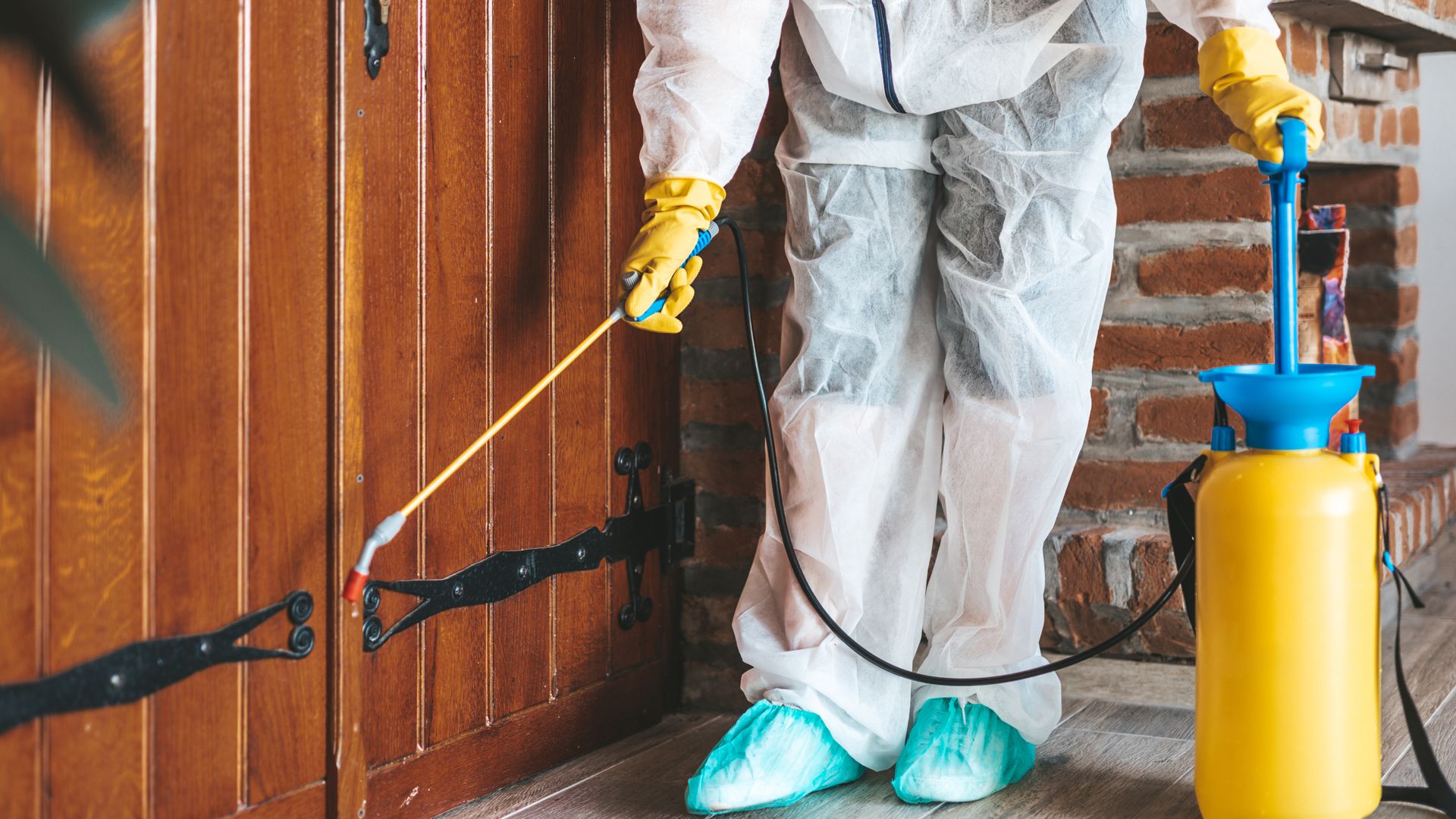
WHEN ARE SOUTH CAROLINA HOMES AT RISK FOR TERMITES?
In our South Carolina service area, the termites we battle are subterranean termites, the most destructive type of termite in the United States. One reason subterranean termites are so destructive is that they can feed on a home 365 days a year. This is because they live underground, where temperatures change much slower than air temperatures. While it can get down into the thirties on a cold February day, it may still be above 60 degrees under the ground. That is more than warm enough for subterranean termites, which can be active in temperatures of 50 degrees or higher. So don't expect those termites to take a break during the winter months. Here are a few more things you should know about termites.

Termites Don't Sleep
"What? Say it isn't so." Sorry. It is so. Termites are simple organisms. They don't need to sleep and recuperate their energy. Those little homewreckers can feed on the wood of your home 24 hours day, 365 days a year.
A Lot Of Mouths To Feed
The termites in our area are eastern subterranean termites, known scientifically as Reticulitermes flavipes. These insects create a network of interconnected feeding sites that are below and above ground level. Together, this network of nests can contain as many as 1,000,000 individual termites. That is a lot of mouths to feed. If workers find a tasty location in your home, you're going to be in trouble.
Subterranean Termites Are Sneaky
If these termites are feeding on your home right now, you're not likely to know it. Subterranean termite workers have an intense aversion to light. This aversion to light causes workers to rarely breach tunnel walls. That means you won't see damaged wood when subterranean termites eat away at your equity. Almost all the damage they do is going to be on the inside of the wood of your home.
While other insects crawl around on your walls where you can see them, subterranean termites crawl around inside. There is one exception to this but we'll get to it at the end of this article.
Their avoidance of light causes them to be sneaky in another way. Subterranean termites create shelter tubes on hard surfaces to get to a food source. These tubes are a helpful warning sign but workers tend to create these helpful warning signs in dark places, such as under a deck, porch, patio, or in the crawlspace under a home to avoid the light. If you want to find evidence of these wood-destroying pests, you're going to have to work to find it. Sometimes, you may even have to dig to find it.
When subterranean termites feed on your home, they're not going to be noisy about it, like carpenter bees. It takes a lot of termites in one spot for noises to be detected by human ears. And the noises you would hear aren't the sound of termites chewing on your wood. It would be the sound of soldiers banging their heads against tunnel walls, which only happens when soldiers sense a threat. Most of the time, those termites will communicate with each other using pheromone scents.
The One Time You'll See Termites
During the spring, something amazing happens: Termites become visible—well, sort of. Spring is the time of year when mature colonies release termite swarmers. These black-colored termites with long white wings do not have an aversion to the light like the workers of a colony do. They're drawn to it. This attraction to light helps them find their way out of tunnels created by the workers and into the air. If you see swarmers on your South Carolina home, you might want to thank them for giving you a warning sign. It might be the only warning you get. But keep in mind that swarms don't last more than 30 minutes, so they may come and go without you seeing them.
The best way to detect termites and prevent termite damage is with professional termite control. How does termite control work? It uses the habits of worker termites against their own colony. When termites come to feed on your home, they find the active ingredient in your professionally applied termite control product and they share it with their colony. When they share it, the colony dies off. No more threat. There is no need to see those termites. They take care of the pest control for us.
If you'd like to learn more about professional termite control or schedule to meet with a termite control specialist, reach out to us today. We're here to help.

Hear from our happy customers
-
“They are always very helpful and pleasant from the field technicians to the people answering the phone.”- Audrey A.
-
“Mr. Cecil was very thorough in his inspection of my home, and even identified a couple of potential problems that I would never have known about.”- Stephanie F.
-
“He is a very kind young man. And always continue to deliver your great service to us.”- Ruby S.
-
“This was the first time I met him as we have been a long time customer of Aiken Pest Control. I hope he will be our normal scheduled tech that comes out!”- Samantha G.
-
“He was extremely knowledgeable and took care with the safety of my dog and my horses pony. He was polite and definitely went the extra mile for my family!!”- Christina W.


Latest Blogs
Stay informed about pests and pest related issues in your area!


